
English official account of Matters Lab, with the mission to create a freer and fairer creator ecosystem. For Mandarin community: @hi176 Announcements related to Web3: @web3
Radical Markets, Blockchain & Monopoly: How a Draw-to-Earn Game Imagines the Redistribution of Wealth
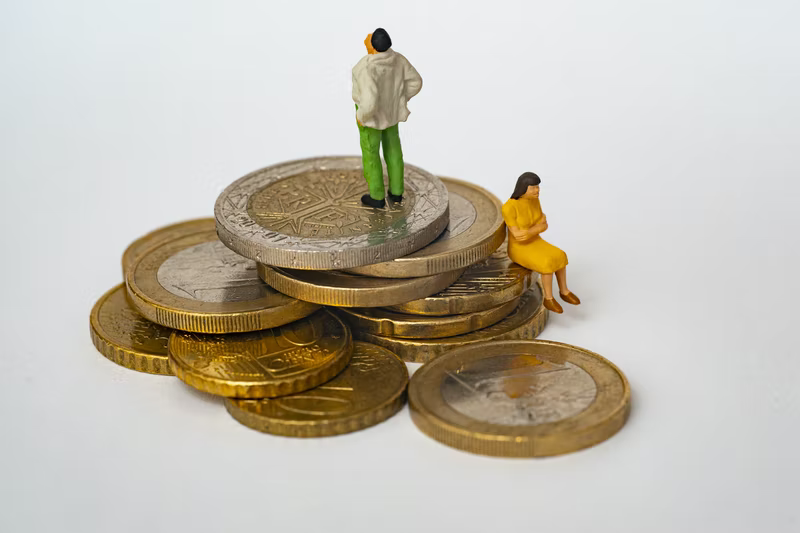
One of our inspirations in creating our draw-to-earn blockchain project, The Space, a public game governed by radical market principles, is a quote from the Book of Rites: When the great way prevails, the world community is equally shared by all. (大道之行也,天下為公) / The worthy and able are chosen as office holders. (選賢與能)
The fever dream of disruption by blockchain-based technology is threatened by a glaring contradiction: NFT and crypto remain playthings for the wealthy, with rules that protect wealth transfer schemes rather than protecting all users equally. Less than 1% of users (institutional investors) make up 64% of Coinbase’s trading volume, and only 10% of traders account for 85% of NFT transactions. The average NFT buyer has an income above $150,000 and buys tokens for profit.
When we discussed The Space in our last update, we wondered whether radical markets can work on blockchain and explained the Harberger Tax and Universal Basic Income. The article was picked up by Coinmonks, Simon de la Rouviere, and even Glen Weyl, the author of Radical Markets.
In our follow-up, we want to take a closer look at the history of radical markets and why we believe blockchain should serve as an infrastructure to improve user experience and public collaboration, instead of a speculation target for the rich.
Let’s explain a few radical market terms that The Space is based on before we jump in:
- Harberger Tax is an economic policy where property owners decide the value of their property and pay a percentage of that value as taxes over time. The owner must be prepared to sell the property to anyone at the declared value.
- Universal Basic Income: a government-led or society-led program where everyone receives a guaranteed basic income.
- Radical Markets: a new way to organize markets to advance economic equality and growth, while promoting public order and compromise.
The Space is the first large-scale experiment to merge blockchain applications with concepts like the Harberger Tax and Universal Basic Income (UBI) to solve the dilemma between public and private ownership. But first, let’s explore the issues with traditional property ownership.
A history of Radical Markets: is property monopoly?
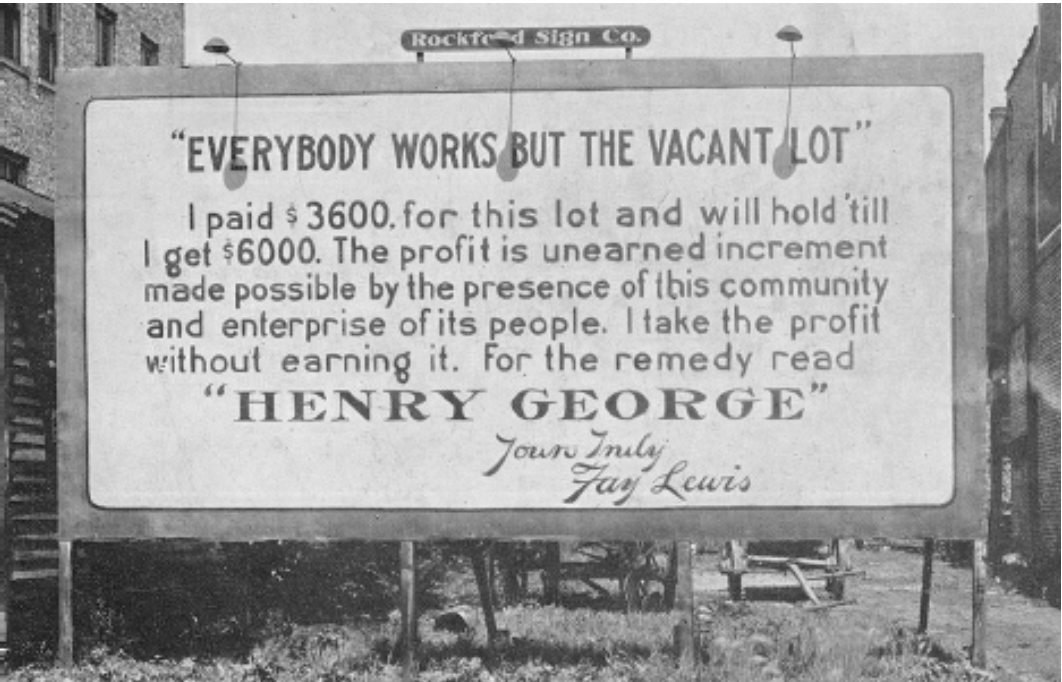
In Radical Markets, Glen Weyl, an economist at Microsoft, and Eric Posner, a law professor at the University of Chicago, argue that owning private property is essentially a monopoly.
Take land. An owner of a valuable plot in, say, the Bay Area of California is inherently a monopolist. Should an entrepreneur need a lot of space to build an office block or houses, the owner of a single parcel can hold her to ransom. Property may not be theft, but it is monopoly.
Monopolies create inefficiencies, in both the allocation and investment of property, because it creates a “holdout” problem. If you‘re hoping to sell your apartment for $100,000, you’ll hold out for this price even if someone is offering to buy it at $80,000.
Instead of allocating the property to its most valuable use, the property is left “dangling” in the market. In the words of Wyl and Posner:
To put this problem starkly: allocative efficiency and thus an efficient market economy is impossible in the presence of private ownership…Monopoly power blocks the path of progress.
In short, private property enhances investment efficiency, but interferes with allocative efficiency (because of holdout problems), and common ownership interferes with investment efficiency but enhances allocative efficiency.
Can blockchain be the solution to allocative efficiency?
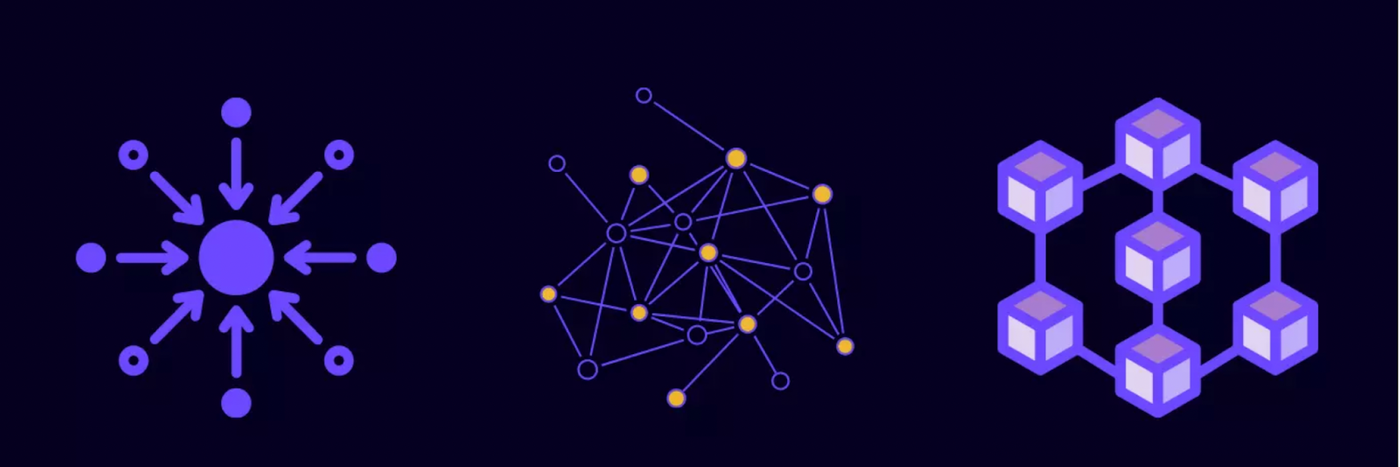
Weyl and Posner’s radical solution is a new wealth tax. Every individual would put a value on each item she owned, and taxed on her total declared wealth. The catch is this: she must stand ready to sell any item at its declared value, should a buyer emerge. If she sets the value high, the hefty tax will go toward compensating society. If she sets the price low to minimize her tax burden, then her assets would be bought up.
In theory, the tax would enable property to be put to its most profitable use, while raising revenue efficiently to fund a Universal Basic Income. The tax would enable property to be put to its most profitable use, while raising revenue efficiently. Because rich people own the most stuff, it would be drastically redistributive. Most importantly, people would come to see property as rented from society, rather than as conferring exclusive ownership.
Similarly, Web3 harnesses blockchain to “decentralize” management. Along with the distribution of ownership is the distribution of decision-making power. By relying on a self-governing platform, for example, based on user share of ownership of a platform, users can vote on the rules that govern a site (e.g. what classifies as misinformation). These rules are then executed by smart contracts. Because of this, Web3 is the ideal launching pad for testing radical market principles–especially since few people can accept radical markets in the real world.
At Matters Lab, we’ve always been interested in establishing Web3 ecosystems based on blockchain technologies, decentralized governance, and content co-creation. In The Space, the Harberger Tax is set at a high rate to drive down the pixel price and keep it liquid, rather than being oligopolized. This eliminates hold-out problems as everyone must sell their pixels at all times. But there’s also an incentive to keep on trading pixels as the tax revenue collected is returned to the users as UBI, achieving investment efficiency.
So how does The Space work?
The rules of The Space are as follows:
- Every pixel is an ERC721 NFT. Pixel owners can set any price for their pixels and pay taxes based on their price.
- Every pixel is always on sale. If the owner doesn’t want to sell the pixel, he or she can hike up the price to prevent purchase. But this means the owner also has to pay a higher tax to keep the pixel.
- 90% of the taxes received is recorded on smart contract and distributed to each pixel owner on The Space in the form of a Universal Basic Income (UBI). 10% of the tax collected will be set as a community fund for SpaceDAO.
- Whether pixel owners decide to sell or keep their pixels, the community benefits from it. If they keep their pixel, the community enjoys a higher UBI. If they sell their pixel, the community gets to own pieces of artwork that they like.
In setting these rules, we wanted to establish the most effective allocation of limited public resources and maximize the liquidity of the “pixel market”.
Blockchain DAOs for public collaboration
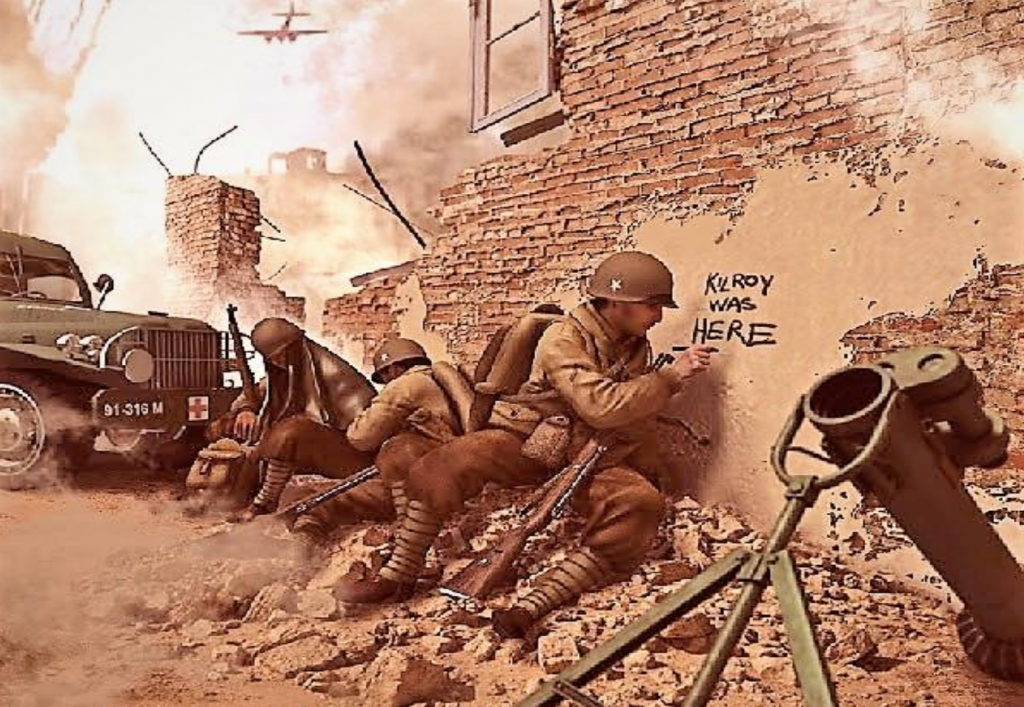
On one level, like the Reddit Place, The Space is a fun coloring game where players color pixels to create unique pieces of art on a digital graffiti canvas. Graffiti is one of the oldest civilization traits. From the Cave of Hands that dates back to 13,000 BCE to the “Kilroy was here” meme sketched by WWII soldiers, graffiti is deeply rooted in human instinct to stay connected with each other.
Like soccer, where each individual player unites to work together as a team to beat the “enemy,” The Space lets players co-create on blockchain in a decentralized community to set up their own rules, help each other, and unite against the “enemy” if there was one.
In our test launch, we saw how users can collaborate in The Space to unite against troublemakers. In one game, a vandalizer covers the canvas with green boxes that covered up other players’ artworks. Since the vandalizer had set the highest price for his pixels, the others couldn’t afford to buy him out.
As tensions rose, chaos unfolded. The two competing teams, although initially rivals, joined forces to reclaim their pixel canvas. They collectively brainstormed together on Discord to come up with solutions. Eventually, they found a loophole. By logging into the game with the email of the “Green Box Man,” the pixel price is reset and the green boxes removed.
In the end, through the cooperation of all players, the participants from both groups reversed a chaotic situation and co-created beautiful, vibrant pixel canvases. As one participant said: “Cooperation is a gradual process. It’s impossible to cooperate without mutual trust, and it’s easy to destroy and difficult to build. The experience was fun.”
In the dynamics of radical markets and DAO, participants can self-govern even without the help of a central authority. We’ve seen how they can collectively make decisions to resolve a complex issue and to help each other out.
What’s next?
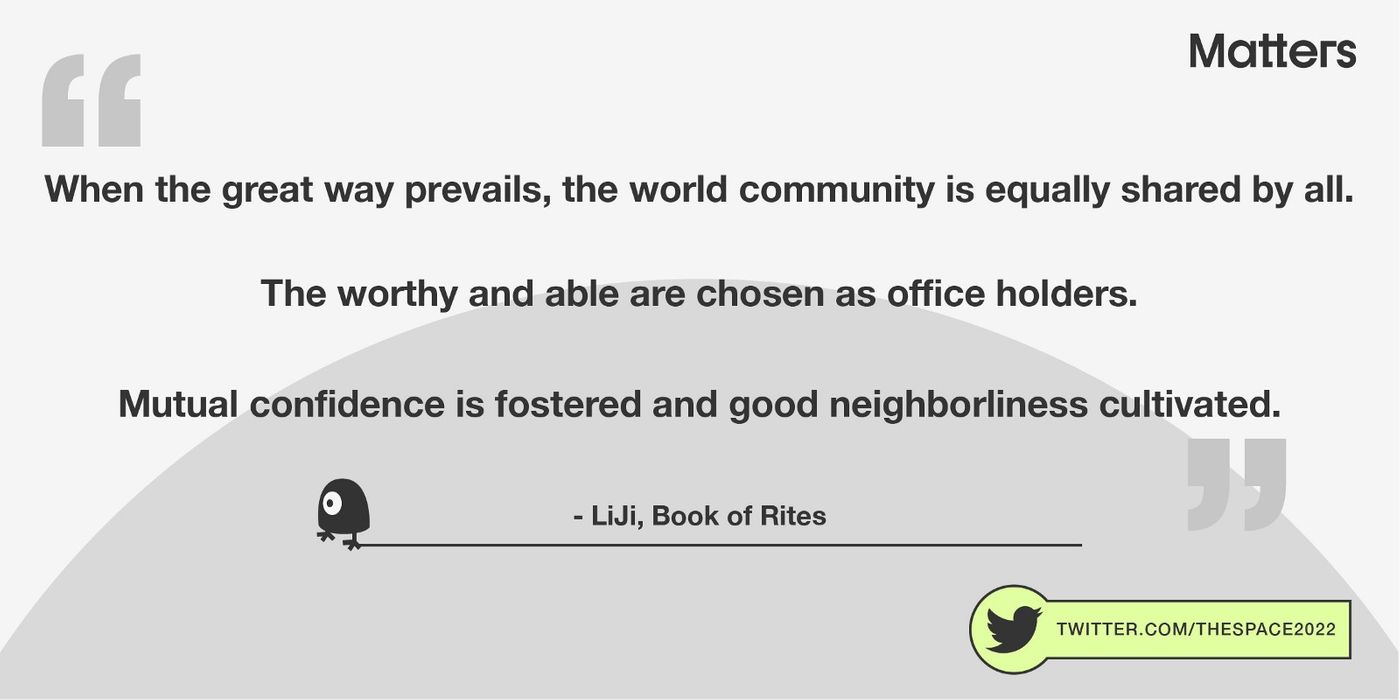
Through the incorporation of radical market principles, we want to develop a new political-economic system on the blockchain that questions economic inequality–it’s truly exciting to see how the dynamics will play out when The Space is officially launched in May.
We are not only inspired by radical market principles, but our inspiration also stems from socialism, capitalism, and even Buddhism. The efficiency brought about by the free market, equally shared by the people, reduces suffering. The pixels in The Space will disappear but still continue to exist on the blockchain–our idea of impermanence and giving up attachment.
While we’re experimenting with these radical ideas, we also hope to build a museum of Internet cultural history. Reddit Place was a gathering place of Internet culture and memes, before it got shut down. Imagine it forever being recorded on the blockchain as a symbol of our generation’s culture.
What we see in the current blockchain world, from NFTs to GameFi, is a rudimentary level of development. Currently, users are still scrambling to understand the technical details, which are better kept under the hood. They are left to meaninglessly speculate on NFTs which is just like speculating on websites and domain names in web 1.0.
NFTs should be an infrastructure, rather than a speculation. Users don’t need to be aware of whether they’re operating NFTs or other on-chain data, similar to how people don’t think about whether Twitter is deployed on AWS or Google Cloud. The selection of all infrastructure is simply to provide a better user experience.
In The Space, people can simply enjoy the fun of collaborating and competing with others. NFTs and tokens are inherent in the purpose of this game and in the overall vision of decentralization and sustainability rather than merely an incentive system. But more importantly, while having fun, we can also test out radical market principles on blockchain to imagine how wealth can be redistributed in a monopolistic world.
About Matters Lab
Since 2018, Matters Lab’s mission is to establish a truly decentralized web3 ecosystem that merges blockchain technologies, decentralized governance, and content co-creation. In our inaugural project, Matters.news, we successfully built a 100,000 strong community of self-governed users who create, earn, and govern the space collectively. Our dynamic NFT collection, Traveloggers, is also the first social media avatar to expand private ownership with co-creation with a never-before Logbook feature.
The Space is the next piece of the puzzle in our web3 ecosystem. With this project, we aim to reform the current political-economic order using the blockchain as an underlying infrastructure for a better user experience.
Want to experience The Space for yourself? Sign up to participate in our next launch of The Space Beta on April 8th.
The test will closely reflect the official version of The Space, which is set to launch in May 2022, as each pixel will be minted as NFT at its first transaction using mock tokens. Every aspect of the game will be permanently stored on the blockchain.
If you didn’t get to sign up, no worries, check out our official website of The Space and subscribe to our email newsletter for the latest updates!
Interested in NFTs? Find our inaugural NFT collection, Traveloggers, on OpenSea here.
Follow us on Medium and @MattersLab and @thespace2022 on Twitter for the latest news and insights on NFT and web3, or sign up for our email newsletter on our website.
References
- Don’t shrink the role of markets — expand it
- Global Cryptocurrencies and Digital Assets
- Mapping the NFT revolution: market trends, trade networks, and visual features
- On Radical Markets
- Who buys NFTs: Is ‘crypto’s bro club’ becoming more diverse?
- Radical Markets: Uprooting Capitalism and Democracy for a Just Society
- Property Is Only Another Name for Monopoly
- Radical markets can work on blockchain. Our web3 experiment–The Space–shows how.
喜欢我的文章吗?
别忘了给点支持与赞赏,让我知道创作的路上有你陪伴。
发布评论…